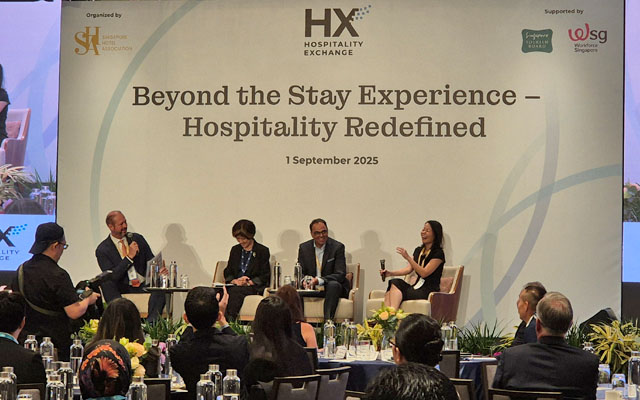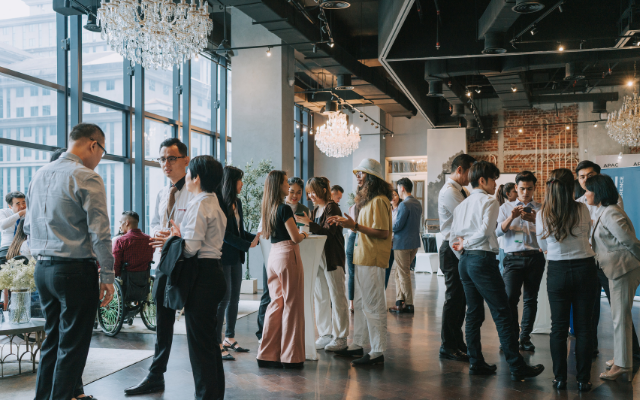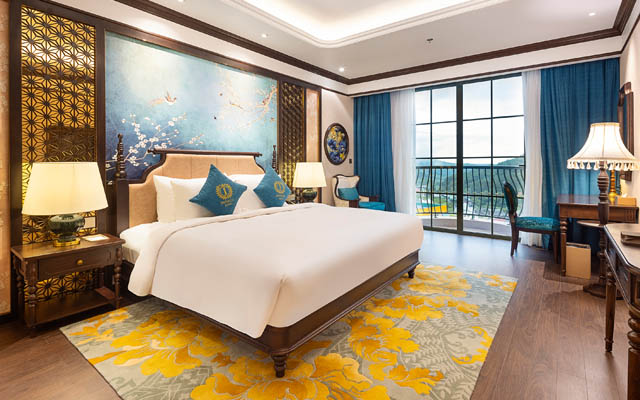Digital fluency, courage to lead and make decisions, emotional intelligence, imagination, and creativity are some of the characteristics expected to be embodied in the future travel and tourism workforce, according to industry leaders on a panel at the Hospitality Exchange 2025 conference on Monday.
Due to the growing implementation of AI in business, Chan Yit Foon, senior vice president, human resources, Marina Bay Sands, believes that the future workforce has to be “digitally-ready and fluent” in technology, beyond understanding and utilising data.

Skills that are “uniquely human”, such as emotional intelligence, imagination, and creativity, will be increasingly crucial, opined Teresa Mok, assistant chief executive, Enterprise Development Group, Workforce Singapore (WSG).
She added that the future workforce will also need “people who have a continuous learning mindset”.
Looking beyond the influence of technology on human resource needs, Rajeev Menon, president – Asia Pacific excluding China, Marriott International, underscored the value of empowering team members, and added that his company has been “developing talent with focus on three parts”.
The first involves encouraging curiosity in its people, where learning and growing in a collaborative environment is key.
The second involves facilitating innovation at all levels, breaking away from the Asian culture of relying on managers for answers and decisions.
Menon recalled that “the best innovation we saw in the field was during Covid because (staff) were told to do what they needed to do to survive”.
“We saw an incredible amount of innovation, incredible amount of questioning the status quo. As a result, we saw change and innovation,” he added.
The third involves facilitating collaboration to achieve best results.
Panellists agree that a future-ready workforce must be agile and adaptable to changes in the business environment and macro-environment.
For this to happen, companies need to assess their career health, opined Mok, who added that this is now a “strategic business imperative and no longer a human resource function”.
Career health should be approached as one does a health assessment, with regular checks on the state of the workforce internally and externally.
Internal career health checks will entail reviews of talent management practices and employee support while external checks will include understanding market trends, new job roles and new skills needed to build the business.
To help Singapore’s travel and tourism businesses with their career health assessment, WSG worked with the Singapore Tourism Board on a hotel sector Job Transformation Map to determine new skills, key trends and future direction in human resources.
When hotels are ready to start job redesign, WSG has support schemes ready for deployment – such as the Productivity Solutions Grant for companies and the Career Conversion Programme for individuals.
Soon to come is a Career Health Workshop for the hotel industry, which will equip human resource professionals, line managers, and supervisors with essential skills to conduct meaningful career conversations and implement structured career planning for their employees. This initiative will be jointly led by WSG and the Singapore Hotel Association.
Mok added: “We’re not stopping here. Next year, we will launch enhanced support under the Enterprise Workforce Transformation Package to help with the end-to-end transformation of the workforce.”
When asked for the crucial ingredient needed in successful workforce transformation, panellists identified supportive leadership and communications.
Chan said teams cannot “just go forward (without anyone following) behind due to a lack of change communication”.
Menon agreed, adding that leadership must be “open to innovation” and encourages team members to lead and “be okay with making mistakes”.
“When you create an environment where people are curious to learn and courageous enough to push the boundaries, question status quo, and bounce ideas off each other, you will create an organisation that’s willing to go beyond what it is used to in the past,” he said.


















